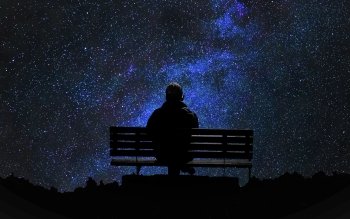
The Diamond Sutra says,
"Out of nowhere, the mind comes forth."
A story of understanding coming out of nowhere.
Some of the old school buildings in Los Angeles had high ceilings
and clerestory windows. A boy was sitting at his little chair in
kindergarten when he saw the yellow light coming in through the
high windows. Dust motes swirled in the beam of light. He noticed
how bright they were and kept watching; then, suddenly there was
no distance between him and the light. He disappeared. He didn't
know how long he was gone; there was no time. When he heard a
voice calling, he didn't recognize the name at first; it didn't have
anything to do with him. Then he heard the other children
laughing and wondered what they were laughing about.
It was the teacher calling him. After that, the things he saw
were beautiful in themselves. Faces seemed more real, and
what was real was beautiful. He didn't really have a name
anymore; he was the beam of light. And it didn't have to be a
beam of light. It could be a Coke can or another child, and he
feel that connection. His sense of yours and mine had shifted
to something like, "My hamburger is yours, your house is mine."
When the grownups around him fought and argued, he felt sad
for them, that they didn't understand, and couldn't see what he
could see.
Usually people work hard to make things happen.
Yet it might be that things happen by themselves, coming out of nowhere.
When you forget your carefully assembled fiction of who you are,
you can find a natural delight in people, in the planet, the stones, and the trees.
There is no observable limit to this beauty, and no one is excluded from it.
Then, if you are fighting an enemy,
you may be fighting them as well as you can,
but you won’t be a true believer.
You will know that an enemy is not truly other
and that the fighting is some kind of misunderstanding.
The worries that lead to quarrels may still be present,
but they are not the main thing.
Your problems could be a kind of dream,
very powerful when you are in it, and yet a dream.
You might notice that, even deep in dreaming,
you are near to waking up.
And the more you are awake,
the kinder the world might seem.
~ John Tarrant
from Bring Me The Rhinoceros
and other Zen Koans that will save your life
photo Buddha's Footprints, by Peter Adams
with thanks to Love is a Place



























.jpg)











